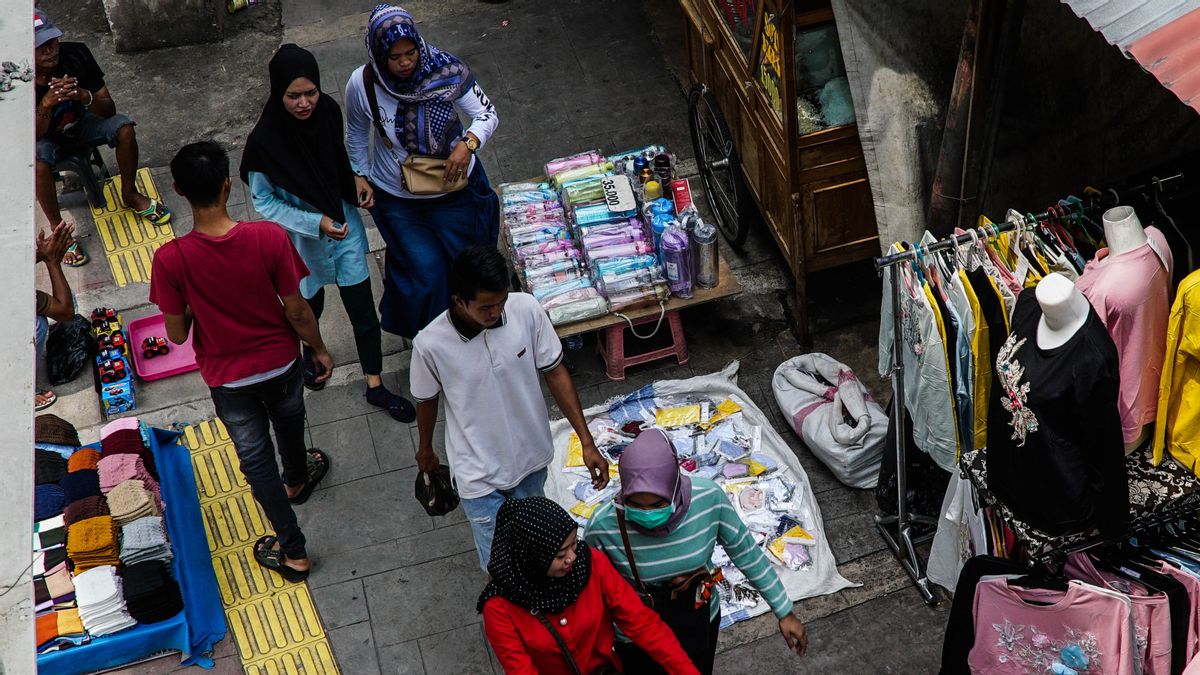JAKARTA - Jakarta's Large-Scale Social Restrictions (PSBB) will be completed today. Then, will the DKI Jakarta Provincial Government implement a new normal pattern or extend the PSBB as a step in dealing with the COVID-19 outbreak.
Many considerations make the new pattern of normality unsuitable for application in Jakarta. Although, the level of transmission is quite low or at number 1, which means that 1 person can transmit to another.
University of Indonesia sociologist Bayu A. Yulianto said the level of public awareness in Jakarta in implementing health protocols is getting lower every day. In everyday life, many people carry out simple health protocols.
"Just look at all areas of community activity, which is simple, it's the practice of washing hands, masks, keeping your distance. It's not getting better, it's getting worse," Bayu told VOI, Thursday, June 4.
In several places, said Bayu, a handful of people have implemented health protocols properly. However, nowhere else, the facts are just the opposite. Keep physical distance as if it doesn't apply because there are still crowds.
"In markets, terminals, food stalls, and others, we still see people who do not apply health protocols. This reflects the low level of public awareness," said Bayu.
In addition, Gajah Mada University Sociologist Sunyoto Usman said the cause of low public awareness was due to the lack of socialization related to COVID-19. So, many seem not to care about health protocols in the middle of the midweek period.
"Awareness is influenced by the socialization of COVID-19 knowledge. The bags (areas) with intensive socialization have relatively better awareness," Sunyoto said.
Positive cases fluctuateThe Board of Experts of the Indonesian Public Health Expert Association (IAKMI) Hermawan Saputra said another factor that causes the new lifestyle to be unsuitable for implementation in Jakarta is the fluctuating number of positive cases. So it cannot be said that the transmission of COVID-19 in the capital city is low.
There are two reasons why the number of infections in DKI Jakarta is still fluctuating. The first is related to the minimal polymerase chain reaction (PCR) detection or inspection capacity.
"From the beginning, this fluctuation occurred because the biggest factor was due to the inspection facilities. It means that our capacity for detection, such as PCR examinations, which has always been done, our capacity is limited," said Hermawan.
Then, the second cause has to do with Eid al-Fitr. Because, after and before Eid, community activities outside the home have increased. Thus, it has an impact on increasing the potential for the spread of COVID-19.
"The flow of homecoming is not very decisive, but yesterday it was busy before and after Eid. Public areas became busy with permissiveness (permitting something)," concluded Hermawan.
The English, Chinese, Japanese, Arabic, and French versions are automatically generated by the AI. So there may still be inaccuracies in translating, please always see Indonesian as our main language. (system supported by DigitalSiber.id)









